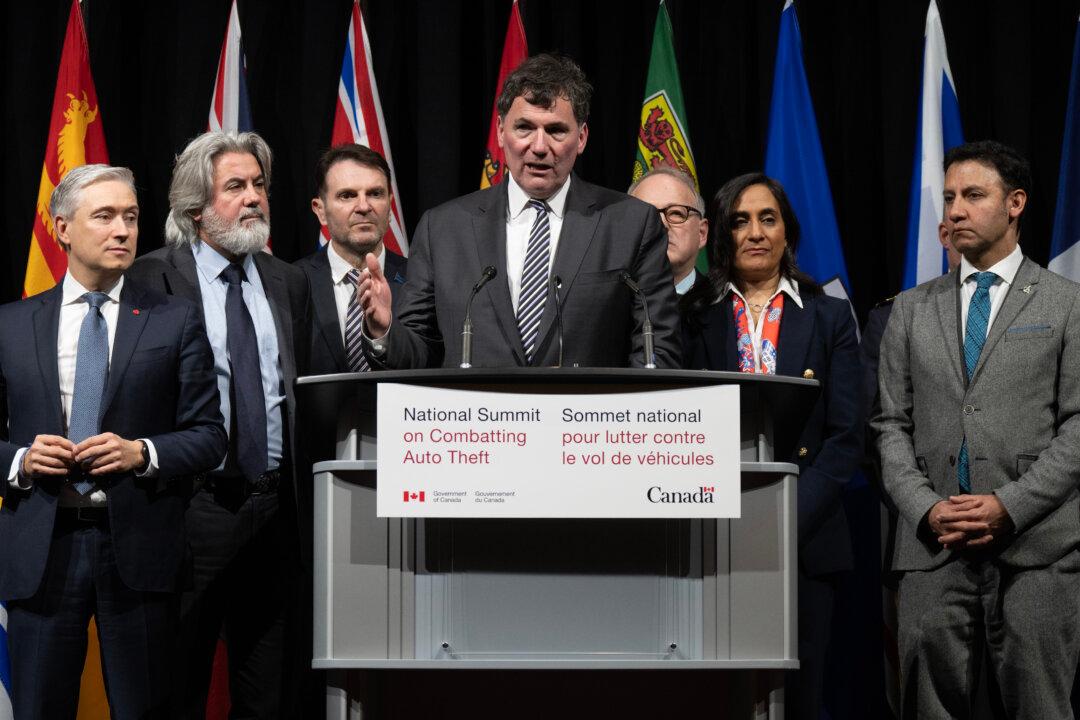Various stakeholders at a summit convened by the federal government to combat the rise in car thefts told ministers that light penalties contribute to the phenomenon.
“Sophisticated transnational organized crime groups have targeted Canada because the risk of prosecution is low and the financial reward is high,” said Brian Kingston at the National Summit on Combatting Auto Theft in Ottawa on Feb. 8.





